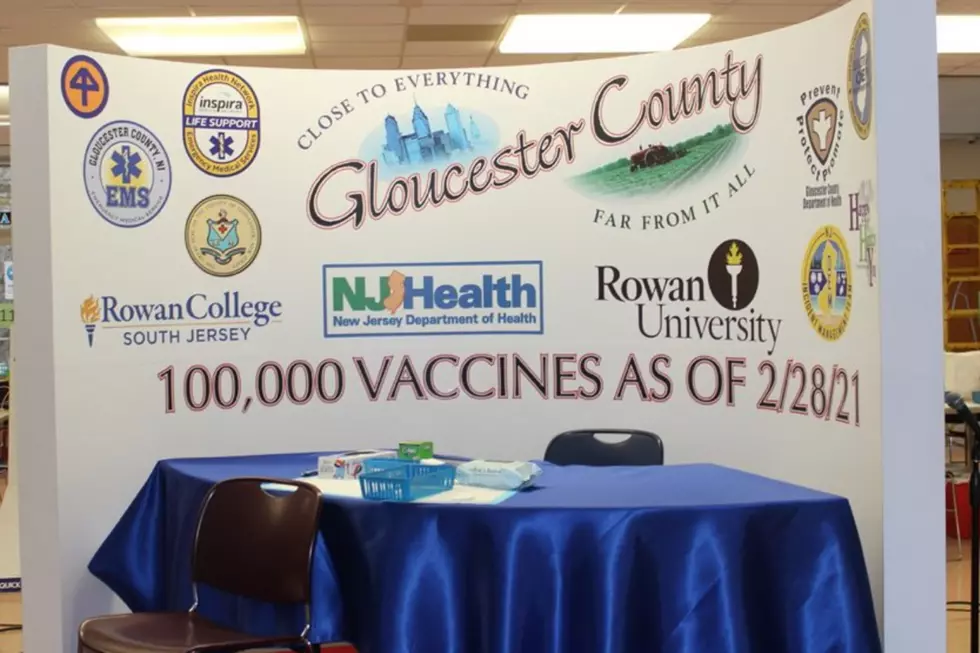
Teachers, Uber drivers, store clerks: Who’s eligible now for the vaccine?
New Jersey has announced another two dozen categories being added for COVID-19 vaccine eligibility before April. But don't worry if you've already registered: Your place on the line will not be disrupted.

A day after Gov. Phil Murphy announced that educators, school support staff and daycare workers would be eligible for COVID-19 vaccines starting in mid-March, the federal government on Tuesday added teachers for immediate eligibility through its pharmacy vaccine program.
CVS, Rite Aid and Walgreens — all part of the federal pharmacy program — already have expanded eligibility to school and childcare staff.
Educators and support staff in pre-K through grade 12 as well as licensed childcare workers in registered settings will be eligible to book at any vaccine clinic site in the state starting on March 15, along with the following:
- Public and local transportation workers, including bus, taxi, ride-share (Uber, Lyft) and airport employees, NJ Transit workers and Motor Vehicle Commission staff
- Public safety workers other than law enforcement/fire professionals, including probation officers and fire safety inspectors
- Migrant farm workers
- Members of tribal communities
- Individuals who are homeless and those in shelters, including domestic violence shelters
- Two weeks later, more frontline workers are set for official eligibility as of March 29:
- Food production, agriculture, and food distribution
- Eldercare and support
- Warehousing and logistics
- Social services support staff
- Elections personnel
- Hospitality
- Medical supply chain
- Postal and shipping services
- Clergy
- Judicial system
Also as of March 29, the following 11 conditions that the Centers for Disease Control and Prevention has said "might" put patients at risk for severe illness from COVID-19, will be eligible for vaccines:
- Asthma (moderate-to-severe)
- Cerebrovascular disease (affects blood vessels and blood supply to the brain)
- Cystic fibrosis
- Hypertension or high blood pressure
- Immunocompromised state (weakened immune system) from blood or bone marrow transplant, immune deficiencies, HIV, use of corticosteroids, or use of other immune weakening medicines
Neurologic conditions, such as dementia - Liver disease
- Overweight (BMI > 25 kg/m2, but < 30 kg/m2)
- Pulmonary fibrosis (having damaged or scarred lung tissues)
- Thalassemia (a type of blood disorder)
- Type 1 diabetes mellitus
That’s in addition to the handful of high risk conditions outlined by the CDC, added for eligibility as of Jan. 14:
- Cancer
- Chronic kidney disease
- COPD (chronic obstructive pulmonary disease)
- Down Syndrome
- Heart conditions, such as heart failure, coronary artery disease, or cardiomyopathies
- Obesity (body mass index [BMI] of 30 kg/m2 or higher but < 40 kg/m2I)
- Severe Obesity (BMI ≥ 40 kg/m2)
- Sickle cell disease
- Smoking
- Type 2 diabetes mellitus
"We will vaccinate 70% of the adult eligible population in six months, we will do that," state Health Commissioner Judith Persichilli said at the state pandemic response briefing on Wednesday.
Previously registered people, who already have been eligible for vaccines under state guideline will "stay in their queue," she said, while newly eligible people can register and get in line through the state and county sites, for when supply ramps up to meet the public demand.
Persichilli and Murphy both said that they expect doses of vaccine to open up considerably in April and May, based on what federal officials have projected.
Marijuana legal in NJ: How do the laws work?
More From 105.7 The Hawk










